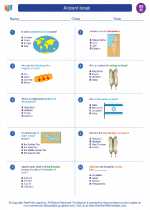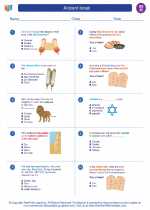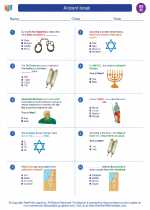Northeastern Africa
Northeastern Africa is a region on the African continent that comprises countries such as Egypt, Sudan, Eritrea, Djibouti, and Somalia. This region is geographically and culturally diverse, with a rich history dating back to ancient civilizations.
Geography
Northeastern Africa is characterized by a mix of desert landscapes, fertile river valleys, and coastal areas. The Nile River, the longest river in the world, flows through this region, providing vital water resources for agriculture and human settlement. The Red Sea and the Gulf of Aden also border this region, influencing trade and maritime activities.
History
This region has been home to ancient civilizations such as the Egyptian, Nubian, and Aksumite empires. The legacy of these civilizations is evident in the form of monumental structures, religious sites, and cultural traditions that continue to influence the modern-day societies of Northeastern Africa.
Modern-Day Issues
Modern-day Northeastern Africa faces various challenges, including political instability, ethnic conflicts, and economic development. The region has also been affected by issues such as water scarcity, food insecurity, and environmental degradation, which require sustainable solutions for long-term stability and growth.
Study Guide
- Identify and describe the major geographical features of Northeastern Africa.
- Explain the significance of the Nile River to the region's history and contemporary livelihoods.
- Discuss the cultural and historical contributions of ancient civilizations in Northeastern Africa.
- Analyze the contemporary challenges facing the region and propose potential solutions.
- Compare and contrast the political and economic landscapes of different countries in Northeastern Africa.
Studying Northeastern Africa provides valuable insights into the complexities of a region with a rich historical past and a diverse contemporary landscape. Understanding the geography, history, and modern-day issues of Northeastern Africa is essential for comprehending the broader context of the African continent.
[Northeastern Africa] Related Worksheets and Study Guides:
.◂Social Studies Worksheets and Study Guides Eighth Grade. Ancient Israel

 Worksheet/Answer key
Worksheet/Answer key
 Worksheet/Answer key
Worksheet/Answer key
 Worksheet/Answer key
Worksheet/Answer key
